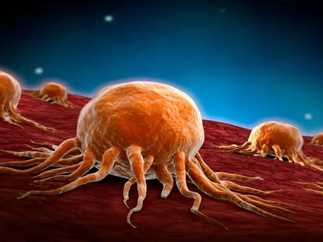Moscow - Saba:
A clinical trial in its first phase has shown the possibility of using vaccines using the "messenger ribonucleic acid" (mRNA) technology dedicated to combating pancreatic cancer.
This research comes at a critical time, as pancreatic cancer is known for its grim prognosis, with a five-year survival rate of only 13% after diagnosis, according to Russia Today.
The disease is often diagnosed in advanced stages due to the lack of early symptoms and the lack of routine tests to detect it.
Pancreatic cancer is one of the most difficult types of cancer to treat, as about 90% of cases are detected after reaching advanced stages, and the nature of the disease allows it to spread quickly to other parts of the body before effective therapeutic intervention is possible.
Despite the use of surgery, chemotherapy and radiation, the effectiveness of these treatments is still limited in combating this cancer, which prompted scientists to search for innovative treatment methods.
Before the emergence of the "messenger ribonucleic acid" (mRNA) technology during the "Covid-19" pandemic, scientists were studying its potential in treating cancer.
This technology relies on teaching the immune system to recognize and attack cancer cells.
The technology is currently being tested in other types of cancer, such as melanoma and colorectal cancer.
For an mRNA vaccine to be effective, it must stimulate a strong response from T cells, a type of immune cell that fights infection and disease. These cells must remain active for a long time to fight cancer cells.
In the recent trial, the effectiveness of personalized mRNA vaccines was tested in a group of patients with operable pancreatic cancer.
The study included 16 patients who had their tumors removed, in addition to receiving mRNA vaccines tailored to the characteristics of their tumors.
The results showed that half of the participants (eight out of 16) responded positively to the vaccine, producing T cells capable of targeting tumors.
Of these, it is estimated that the T cells could remain active for up to eight years, and about 20% of these cells could continue to work for decades.
Although these results represent a promising step in the fight against pancreatic cancer, they are still in their early stages.
More experiments will be required to evaluate the effectiveness of mRNA vaccines and their potential for wider application in treating this stubborn type of cancer.

| more of (Press) |




